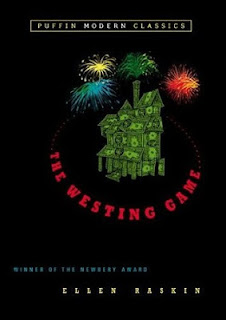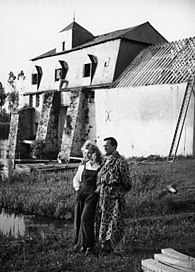Three really great books this month! Thanks for indulging me, those who read this blog to find out what crazy things my twins have done lately. The rest of the traffic is people looking for a reason to correct me. "Rose Byrne is Australian, not English," one Anonymous commenter informed me. Who cares?! I've moved on. Ha!
1. We, the Drowned by Carsten Jensen
I don't remember how I chose this one. It's almost 700 pages long, which adds to the mystery of why I would choose it. The reader is a fly-on-the-wall of a small shipping town in Denmark called Marstal. It's a real place! And very near a Swedish shipping town where some of my ancestors are from.
Jensen would take one character and follow them for a bit, starting in about 1845. That character would disappear or die and his son or someone connected to him would pick up the thread. All the males in Marstal become sailors. What else is there? Sometimes I was a fly-on-the-ship following a character around the world. Many of the men of Marstal are lost at sea, so the women are the real heart of the town. They're often alone and most don't get to have funerals for their husbands or sons. Toward the end of the book one of the characters points out that the sailors who do come back, stay in Marstal. It's the farmers who end up leaving for America and never coming back. (Like my Ohlson ancestors!)
One of my favorite things about We, the Drowned was all the folk tales that were woven into the story. Stories that become legend in this small town. Laurids Madsen (the first character the reader follows) was on the deck of a ship when it was bombed. People saw Laurids fly into the air and come back down to the deck of the ship, landing on his feet. From then on, the townspeople would ask Laurids to tell the story of how he flew into heaven, showed St. Peter his "ass" and came back down on his feet. Laurids credited his boots. Laurids's son, Albert, goes on an unbelievable journey to find his father (spoiler alert: Laurids goes Crazytown and ends up on an island somewhere in the Pacific), wearing the boots. I loved Albert! He was such a tough guy, determined to do the right thing. "Nobody sailed into a raging gale with all sails set. You didn't confront a storm head-on. You adjusted the sails and found a balance. All genuine order depends on that kind of balance, not on one man's suppression of another." Two generations later, a gang of boys calls themselves The Albert Gang and they promise to die with their boots on, just like Albert, who was wearing his father's boots when he died. Standing up.
There were sections of this book that I could have read for days and months and loved every minute. Then there were other sections that made me want to put it down and never come back to it. The people became real to me, for sure. I think it was the World War II section that was the worst - too real and awful to enjoy. Carsten Jensen is Danish and he did his research in Marstal. There are some pretty unbelievable circumstances in this book, but they ring true. Sometimes real stories are the most unbelievable kind. I find myself enjoying the voices of authors from other countries. The way they write is so different and yet familiar. I can't wholeheartedly recommend this book because of the sailors' potty mouths and also, it is very long.
2. The Westing Game by Ellen Raskin
I had to follow up such a long and disturbing book with something short and fun (like me!). The Westing Game was recommended to me by friends who know their young adult literature. They were so right! The Westing Game is a murder mystery that ends up not being so murder-y after all.
The heirs to the Westing estate are all brought to live in the same apartment building (clearly orchestrated by someone). Samuel Westing is apparently murdered in his own home, conveniently located on a hill above the apartment building where all his heirs live. The heirs are all paired up and the Westing Game begins. They're given clues to find Samuel's murderer, but in order to get the full clue, the groups are going to have to work together. Each pair is given $10,000 to share, but the one who solves the puzzle gets millions of dollars.
It's a fun mystery. I got to see all the clues and I still didn't figure it out. Reading this book reminded me of being in 5th and 6th grade when we were new to Pocatello, Idaho, and I didn't have very many friends yet. I read a lot. I would have loved this book. Great, harmless fun.
3. My Father's Glory and My Mother's Castle by Marcel Pagnol
In my so-far-unsuccessful quest to learn French, I had the pleasure of getting extra credit for viewing some of Marcel Pagnol's movies. Even not being able to understand French and reading the subtitles, I still enjoyed "Jean de Florette" and "Manon of the Spring." Pagnol has a brilliant, charming, yet simple way of expressing himself. My Father's Glory and My Mother's Castle is a memoir of Pagnol's childhood outside Marseilles, France. Most of the stories come from his first summer in his family's "country house" in La Treille. (Quotes around country house because it sounds like a very low-key cabin. His father was a teacher and he bought the house with his brother-in-law Jules.)
I think I smiled at least once in every page of this book. Reading it really made me feel calm and happy. I can't say that of many books. Pagnol makes a dear friend, the son of a farmer named Lilli, at their country house. Marcel and Lilli go hunting together (they set traps - they're only nine years-old) and explore the hills, just the two of them, all day every day. When the two month break is over and it's time to go back to the city, Marcel decides he'll live in the hills on his own. The farewell letter he writes to his parents is one of the funniest things I've ever seen.
Marcel is a gifted student and he's up for an important scholarship. Lilli is at a clear disadvantage educationally, but he writes Marcel a letter during the school year that took a lot of effort. In reply, Marcel carefully writes a draft in pencil, then another one in ink on his best paper after he's had his father check his spelling. Before he sends the beautiful letter, Marcel thinks about his friend's effort and goes downstairs in the middle of the night. "I first tore out, with a jerk, three pages of my copybook, thus obtaining the jagged edge I wanted. Then, with an old nib, I re-copied my over-beautiful letter, suppressing the witty phrase which made fun of his loving white lie. I also deleted in passing the paternal s's, I added a few spelling mistakes which I chose among his own... Finally I took care to embellish my text with unexpected capitals. This delicate labour took me two hours and I felt sleep overcoming me...With the end of my pen-holder I fished out a big drop of ink and, on my elegant signature, dropped this black tear: it burst like a sun."
I love that so much. I would be in the middle of laughing, because Pagnol captured the mind of a nine year-old boy so exactly, then I would tear up at the next words. Really, My Father's Glory and My Mother's Castle was delightful.



3 comments:
I saw both those Pagnol movies, too! High school french class. ;)
Hi Nicole,
I am a friend of your sister Melissa, but I wanted to let you know I always click on your blog to read these book reports. I've added several of them to my "to read" list.
And who knew Rose Byrne was Australian?
I just added some of these books to my Amazon wish list. It's getting long!
Post a Comment